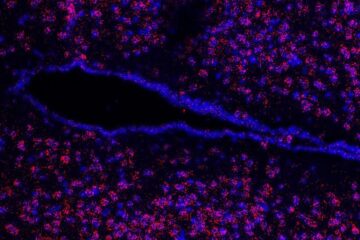Sun avoidance will not reduce cancer

Avoiding the sun is not the best strategy for reducing overall rates of cancer, claims a senior doctor in a letter to this week’s BMJ. Recommending moderate exposure to the sun would be more prudent.
Sun exposure is the main source of vitamin D, which reduces the risk of colon, breast, prostate, and other cancers, writes Professor Cedric Garland at the University of California.
People in the United Kingdom cannot synthesise vitamin D from November to March, so become deficient by December, he says. Therefore, supplementation of the diet with vitamin D would be helpful, in addition to encouraging moderate exposure to the sun.
Residents of the United Kingdom should aim for 10-15 minutes a day in the sun when the weather allows, without sunscreen, to allow adequate synthesis of vitamin D, he concludes.
Media Contact
More Information:
http://press.psprings.co.uk/bmj/november/ltr1226.pdfAll latest news from the category: Health and Medicine
This subject area encompasses research and studies in the field of human medicine.
Among the wide-ranging list of topics covered here are anesthesiology, anatomy, surgery, human genetics, hygiene and environmental medicine, internal medicine, neurology, pharmacology, physiology, urology and dental medicine.
Newest articles

Roadmap to close the carbon cycle
A holistic approach to reach net-zero carbon emissions across the economy. A major approach to achieving net-zero carbon emissions relies on converting various parts of the economy, such as personal…

Cost-effective, high-capacity, and cyclable lithium-ion battery cathodes
Charge-recharge cycling of lithium-superrich iron oxide, a cost-effective and high-capacity cathode for new-generation lithium-ion batteries, can be greatly improved by doping with readily available mineral elements. The energy capacity and…

New regulator of eating behaviour identified
The rapidly escalating prevalence of overweight and obesity poses a significant medical challenge worldwide. In addition to people’s changing lifestyles, genetic factors also play a key role in the development…





















